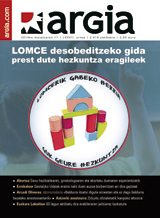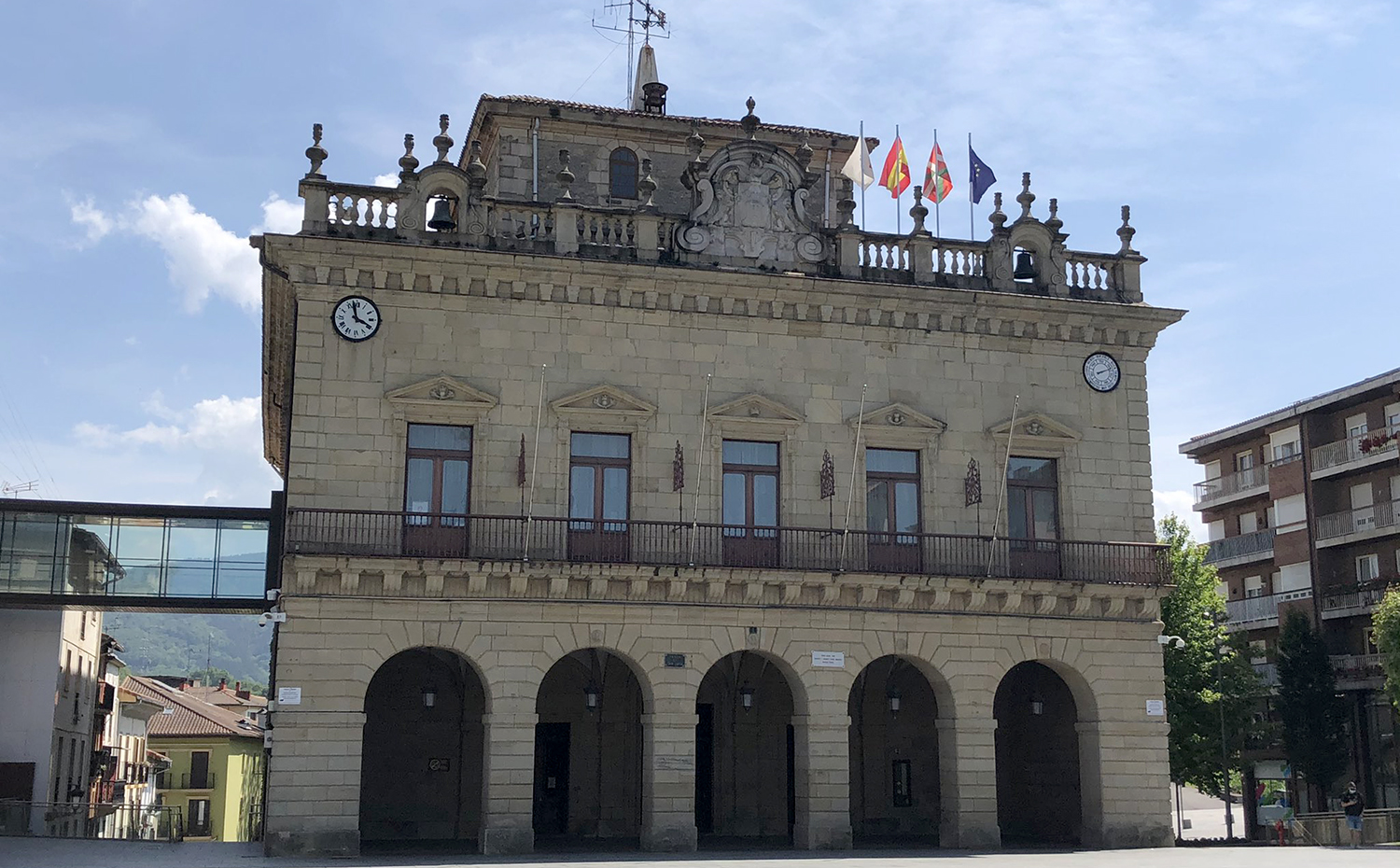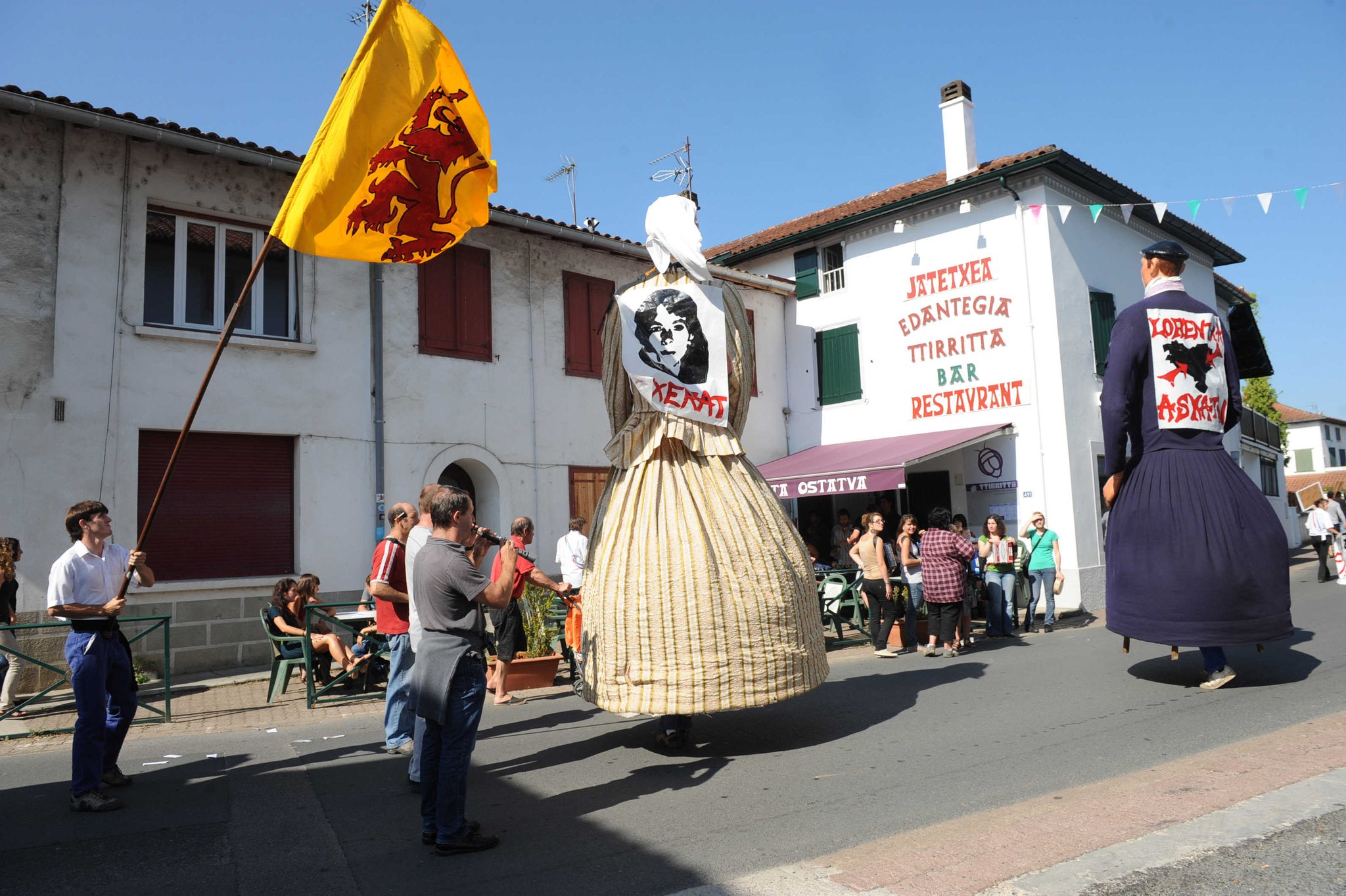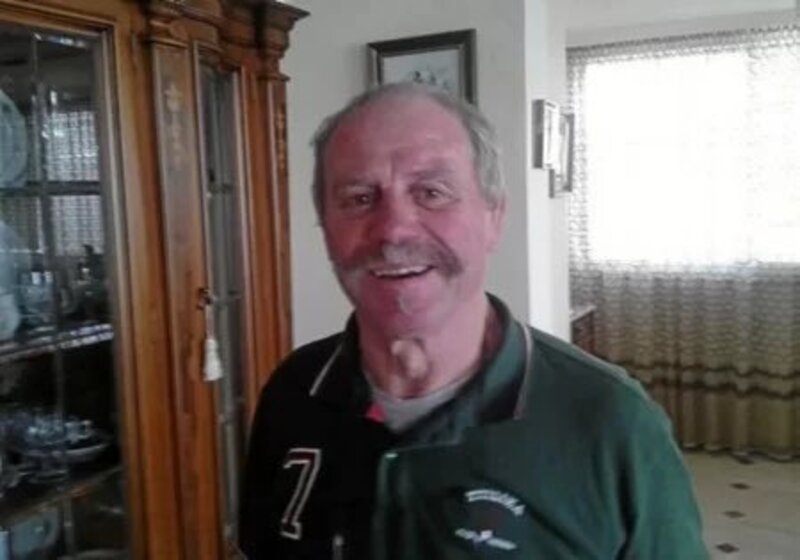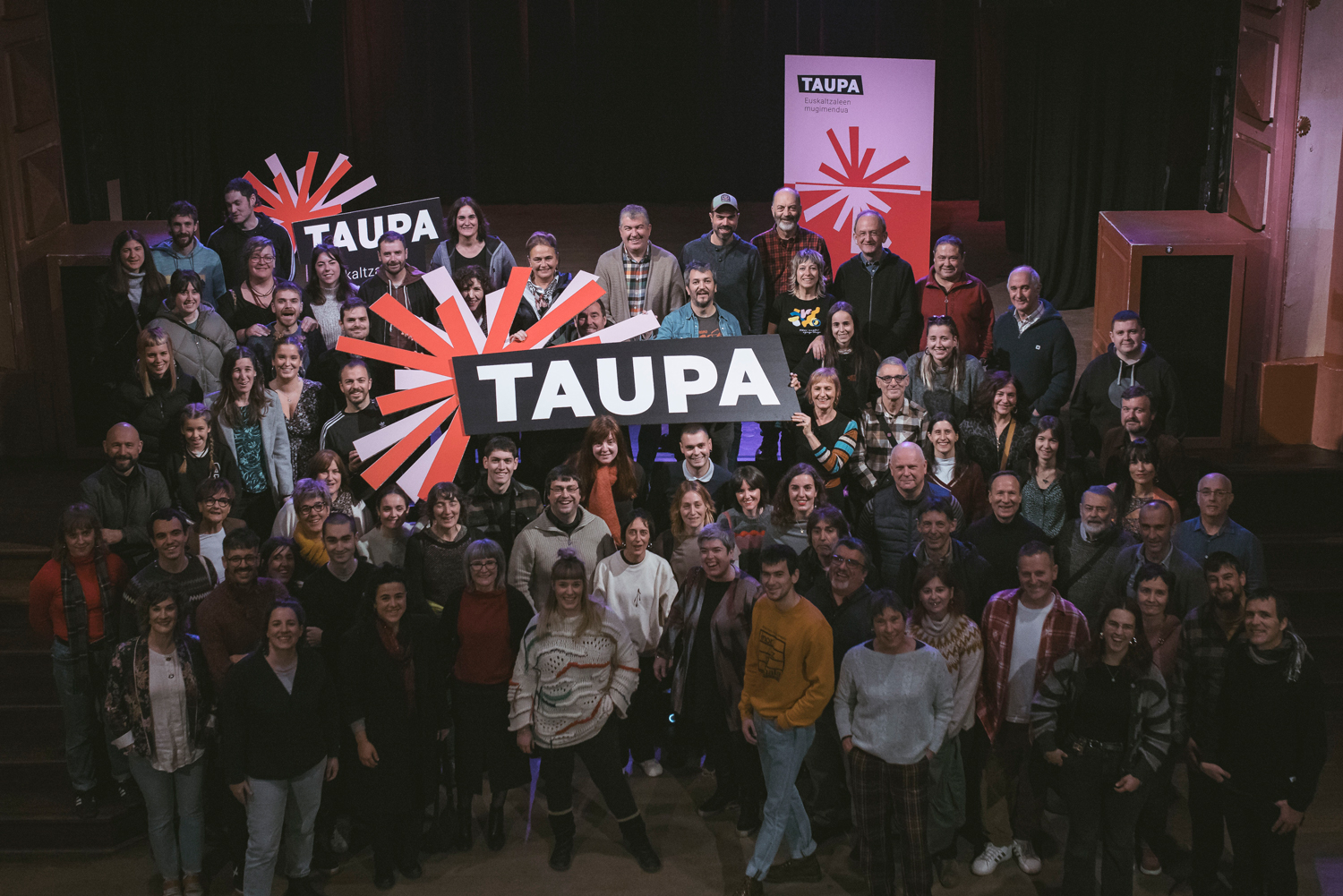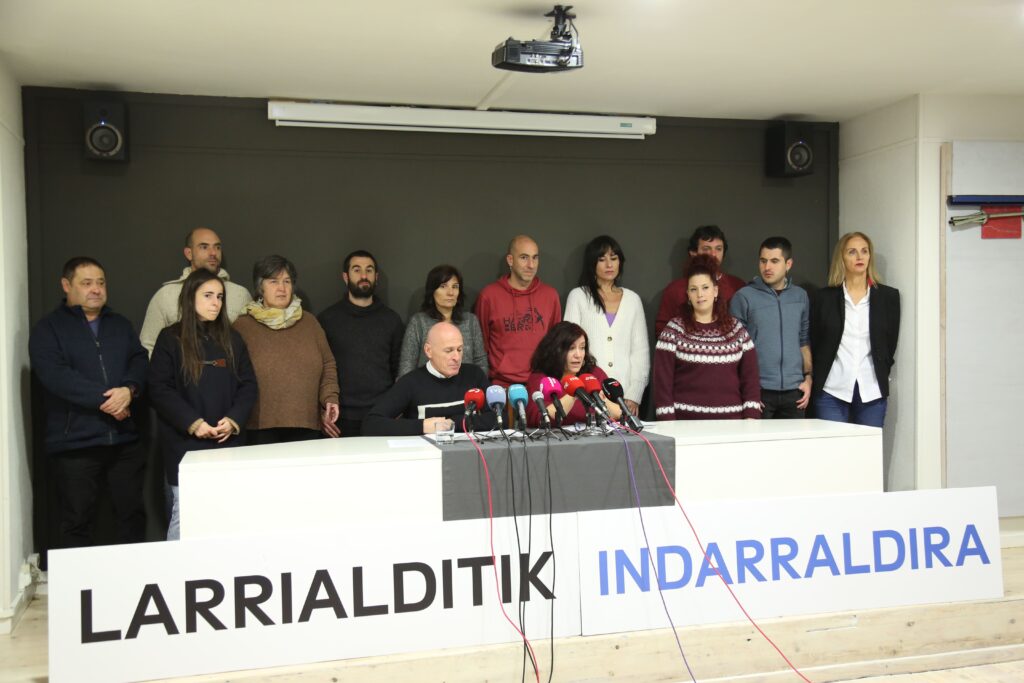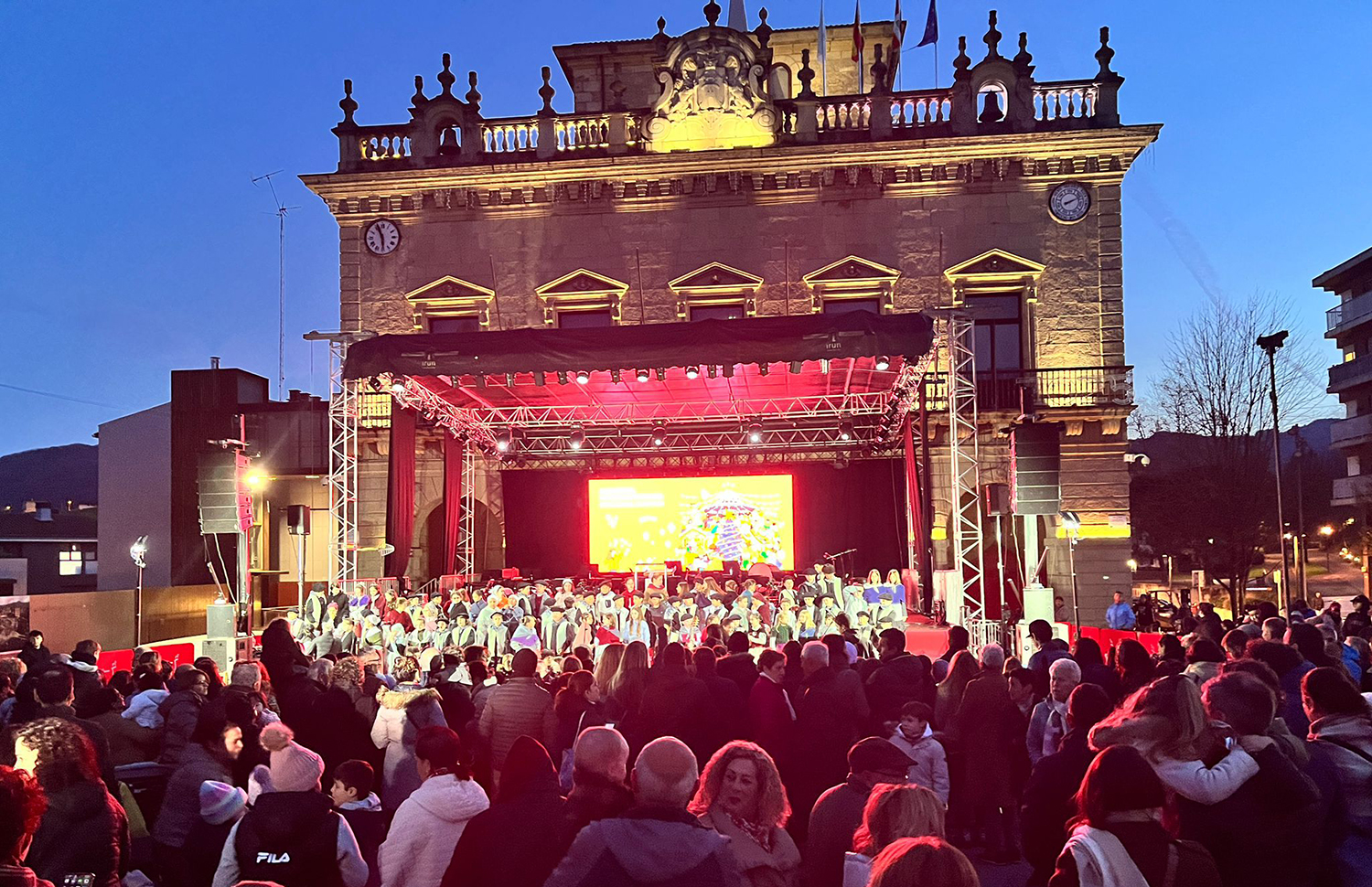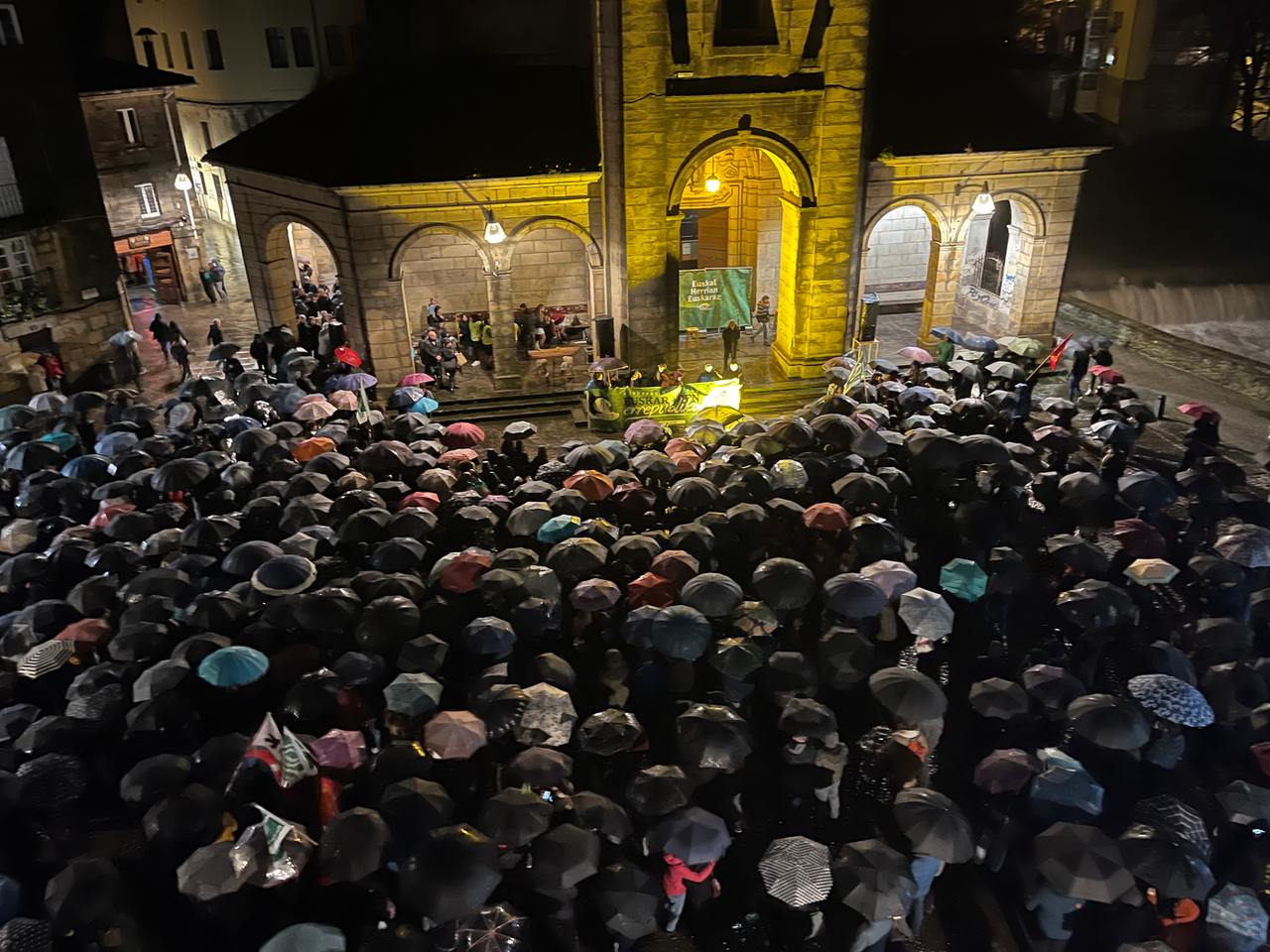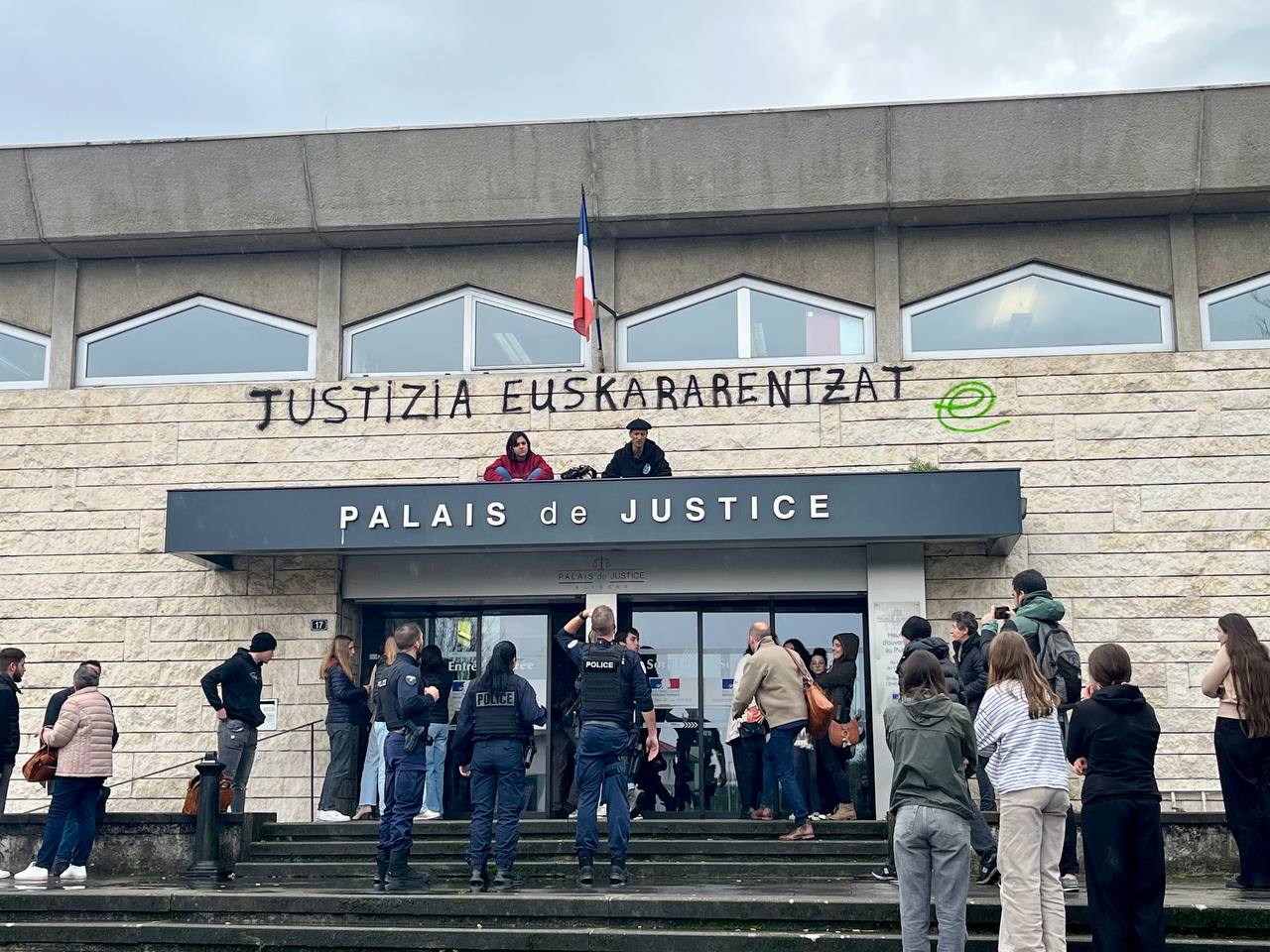The neighbours of Lekeitio want the people to remain the centre of their breathing
- Seeing that the use of Euskera in the family environment is decreasing, some 60 Lekeitio residents have been activated to cope with the situation.
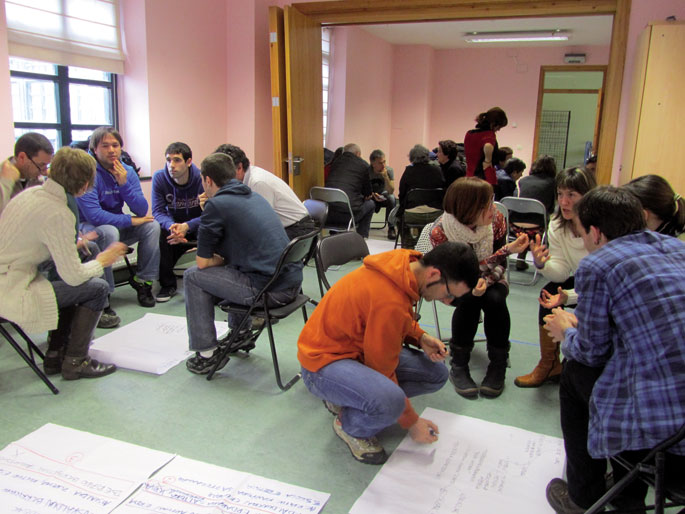
Lekeitio (Bizkaia) is a town that has always had an Euskaldun atmosphere. In the final use measurements, however, it has been found that the situation is being altered. Of the ten lekeitiarras, 8.6 are Euskaldunes, but the use of Euskera has decreased from 80% to 66%. With this in mind, a very special dynamic has been organised since the beginning of the year, in which some 60 lekeitiarras have participated in the UEMA respiratory workshops. Work is now under way to turn the use of public roads in the locality.
In Lekeitio there has been a decrease in social use, especially in the age group between 25 and 55 years. 54.2% of the interviews are held in Euskera, according to the measurement made by the Cluster of Sociolinguistics in 2008. Among the adults, Spanish is the language that is most heard in the vicinity of the two schools in the locality: 43% of the interviews were measured in this language during the after-school hours. This year it will be measured again, and the data concerns them.
They do not know very well where the decline of the Basque country comes from. In the words of Iker Ajuriagerra, Euskera technician at the City Hall of Lekeitio, the phrases in Basque and Spanish are mixed in higher percentages than before. Ajuriagerra believes that the socioeconomic changes in Lekeitio may have to do with: “Lekeitio has gone from being a town that has been looking at the sea to a town that looks at tourism. We're looking at people outside and we think that's going to influence." The UEMA workshops have also concluded that learning and working in non-vasco-speaking countries can influence. Regarding the tension linked to language, they have also explained that they live a point of relaxation.
This year, Lekeitio's neighbours have begun to make an attempt to turn this data around. “As change has now taken place, we must act now.” And they've managed to motivate citizens. They sent a letter to disseminate the data in the village, and in the Euskera Commission, they thought about expanding the reflection group. “The twelve people we met in the committee had that particular concern, that informal use has come down. But we didn’t know if that concern was on the street,” Ajuriagerra said. The answer was very good. In the workshops and talks of UEMA, 30 people participated and in the end they have formed a group of 60 Lekeitio neighbors, “we have realized that this concern is on the street”.
Many of Lekeitio, quiet
Some of the people who participated in the workshops were concerned about the data they had, while others did not believe that the situation was bad. They think that also in the village in general people are quiet: “We are too convinced that we are a breathing space and we do not see the opposite until we get the data,” said Aitor Abaroa, after participating in the workshop. Fernando Garatea has reported what happened when they started making invitations from the committee: “I went to several with the recadist, and when they gave me the data, more than one told me it wasn’t true. ‘How it has gone down like this, I use it as usual, and also in my environment’. They don’t realize it, but we are increasingly intercaling Castilian and Euskera.”
The UEMA workshops have reflected on the change that has taken place in the alternation of the two languages, and that is one of the challenges they have now. In the words of Iker Ajuriagerra, “a large group is not aware of what percentage it is in Spanish, and how the Basque country is losing ground in the exchange”. Almost without realizing it, Castilian is increasingly entering into friendly conversations. However, the fact that only 60 people have joined to work in Euskera has greatly welcomed members of the Euskera Commission, including Andoni Seijo: “At first I thought we were all four of us, and I’ve been very happy to see people from such different backgrounds. It is a nice starting point. The most effective way to act is ourselves; we have the capacity to reach so many other people.”
The workshops talked about the need for it to remain a breathing space for young people. They have held a TELP workshop, have internalized some concepts of sociolinguistics through lectures and have identified the needs of the people. Now they know where they want to influence.
School environments, target of one of the areas of work
Four areas have been defined to influence the use of Euskera. In the area of awareness, a group has been set up to influence the environment of educational institutions. In fact, the data indicate that there is the lowest use of Euskera: 57.3% (mean of all ages 66%). They have explained that this is the case in the two centers, once the classes are finished and when the people meet. They're about to do a job with parents, uncles and grandparents. “Parents speak more and more Spanish in school settings and that’s an example of students.”
Another group will work to launch Lekeitio's words and expressions in the face of the problem of the interaction between languages. They want to identify and disseminate equivalences of customary sentences in Spanish. The City Hall has a project to decorate the windows and empty locals of the town, and taking advantage of it, they have seen that there is a way to disseminate expressions and words of Lekeitio.
A third group has been responsible for influencing the landscape the language of commerce and hospitality. The objective of the group will be to help translate Basque posters, menus cards or advertising papers, among others.
Finally, a video will begin to be produced that will spread the issue to more citizens of the Basque Country. The citizens would talk about their relationship with the Basque Country. “60 people have spoken about the use of Euskera in Lekeitio, and that’s not a little, but what to do to extend it to more citizens? Surely a video showing 60 lekeitiarras would see it as a razor!” said Lekeitio’s Basque technician. As the theme and motivation from the Basque commission to 60 neighbours and neighbours of Lekeitio have conveyed, the intention is to extend it to all the people: “There may be a multiplier effect if each one acts in their environment.”
Lekeitioko hizkera itsasoagaz oso lotuta egon dela azaldu du Iker Ajuriagerra euskara teknikariak: “Gure belaunaldia itsasoagaz loturarik ez daukan lehenengoa da. Orain arte, Lekeitioko gizon-emakume guztiek zeukaten lotura itsasoagaz, eta euskaran igartzen zen. Adibidez, mozkortuta dagoela esateko ankilikot erabili izan da, itsasoagaz lotura daukan berba. Gaur egun hogei urteko gazte bati ankilikot esaten diozu eta ez dauka zentzurik ez gatzik ez ezer, horregatik ez da transmititu, eta jerga hori erdarazko hitzek ordezkatu dute”.
Gabonetako argiak pizteko ekitaldia espainolez egin izanak, Irungo euskaldunak haserretzeaz harago, Aski Da! mugimendua abiatu zuen: herriko 40 elkarteren indarrak batuta, Irungo udal gobernuarekin bildu dira orain, alkatea eta Euskara zinegotzia tarteko, herriko eragileak... [+]
We Basques move our feet behind the witness of Korrika to proclaim that we want to survive as a Basque people in favor of our language, with the aim of the Basque Country we desire.
The tipi-tapa is the first step taken by a migrant person who leaves his homeland in Africa,... [+]
Euskaraldia comes back. Apparently, it will be in the spring of next year. They have already presented it and the truth is that it has surprised me; not Euskaraldia himself, but his motto: We'll do it by moving around.
The first time I have read or heard it, the title of the... [+]









